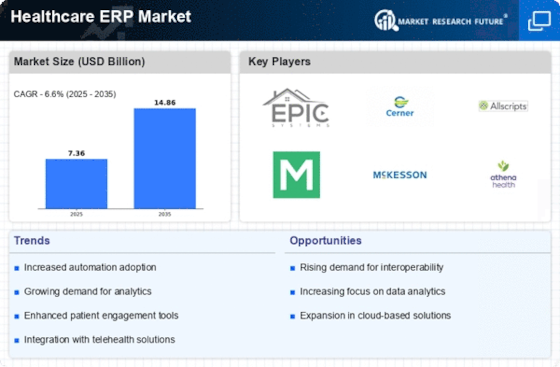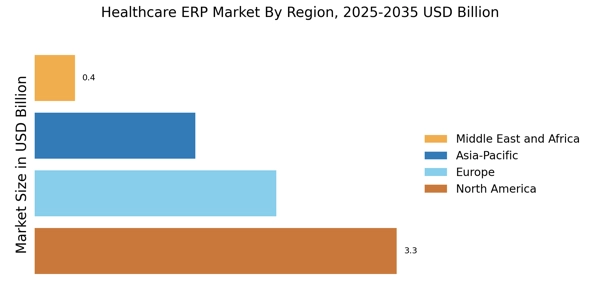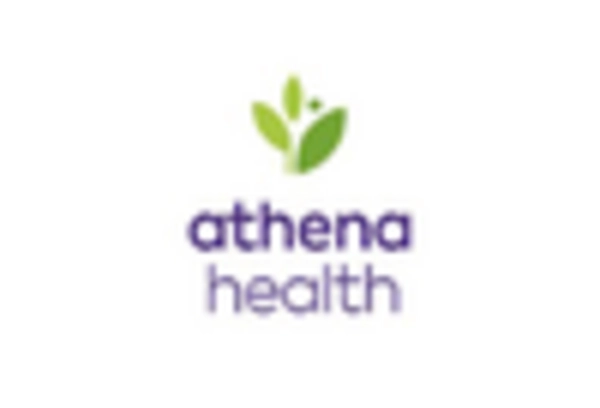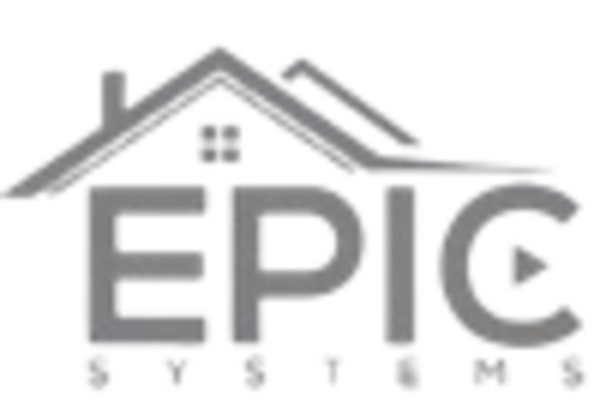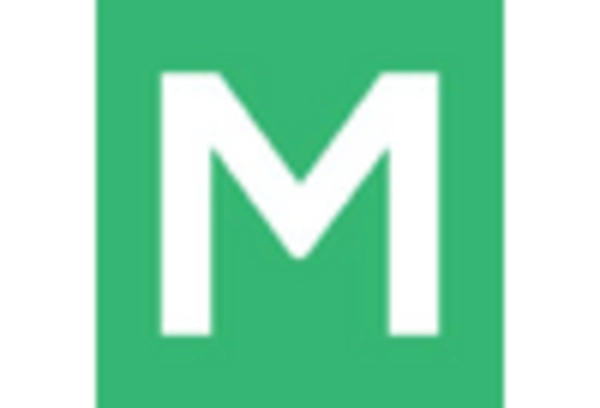Growing Need for Interoperability
The Healthcare ERP Market is increasingly driven by the need for interoperability among various healthcare systems. As healthcare providers adopt multiple technologies, the ability to seamlessly exchange data becomes paramount. ERP systems that offer interoperability features enable organizations to integrate disparate systems, facilitating better communication and collaboration. This trend is particularly relevant as healthcare organizations aim to improve care coordination and patient outcomes. The market is expected to expand as stakeholders recognize the value of interconnected systems in enhancing operational efficiency and patient care. The Healthcare ERP Market is thus positioned to benefit from this growing demand for interoperability.
Increased Focus on Data Analytics
The Healthcare ERP Market is witnessing a growing emphasis on data analytics capabilities. Organizations are increasingly leveraging ERP systems to harness vast amounts of data for informed decision-making. The integration of advanced analytics tools within ERP solutions allows healthcare providers to gain insights into patient outcomes, operational performance, and financial health. This trend is underscored by the fact that organizations utilizing data-driven strategies can improve patient satisfaction scores by up to 20%. As the demand for actionable insights continues to rise, the Healthcare ERP Market is likely to expand, driven by the need for enhanced data management and analytics capabilities.
Rising Demand for Operational Efficiency
The Healthcare ERP Market is experiencing a notable surge in demand for operational efficiency. Healthcare organizations are increasingly seeking integrated solutions that streamline processes, reduce costs, and enhance productivity. According to recent data, organizations that implement ERP systems can achieve up to a 30% reduction in operational costs. This trend is driven by the need to optimize resource allocation and improve patient care delivery. As healthcare providers face mounting pressure to deliver high-quality services while managing expenses, the adoption of ERP systems becomes a strategic imperative. The Healthcare ERP Market is thus poised for growth as organizations recognize the value of these systems in achieving operational excellence.
Regulatory Compliance and Risk Management
The Healthcare ERP Market is significantly influenced by the need for regulatory compliance and effective risk management. Healthcare organizations are required to adhere to stringent regulations, including HIPAA and other data protection laws. ERP systems play a crucial role in ensuring compliance by automating reporting processes and maintaining accurate records. The market is projected to grow as organizations recognize the importance of mitigating risks associated with non-compliance, which can lead to substantial financial penalties. Furthermore, the integration of compliance features within ERP solutions enhances the overall governance framework of healthcare organizations, making the Healthcare ERP Market increasingly vital.
Shift Towards Patient-Centric Care Models
The Healthcare ERP Market is evolving in response to the shift towards patient-centric care models. Healthcare organizations are increasingly focusing on delivering personalized care experiences, which necessitates the integration of patient data across various platforms. ERP systems that support patient engagement and management functionalities are becoming essential tools for providers. This shift is reflected in the fact that organizations adopting patient-centric approaches can see a 15% increase in patient retention rates. As the emphasis on patient-centered care continues to grow, the Healthcare ERP Market is likely to experience significant growth, driven by the demand for solutions that enhance patient engagement and satisfaction.


